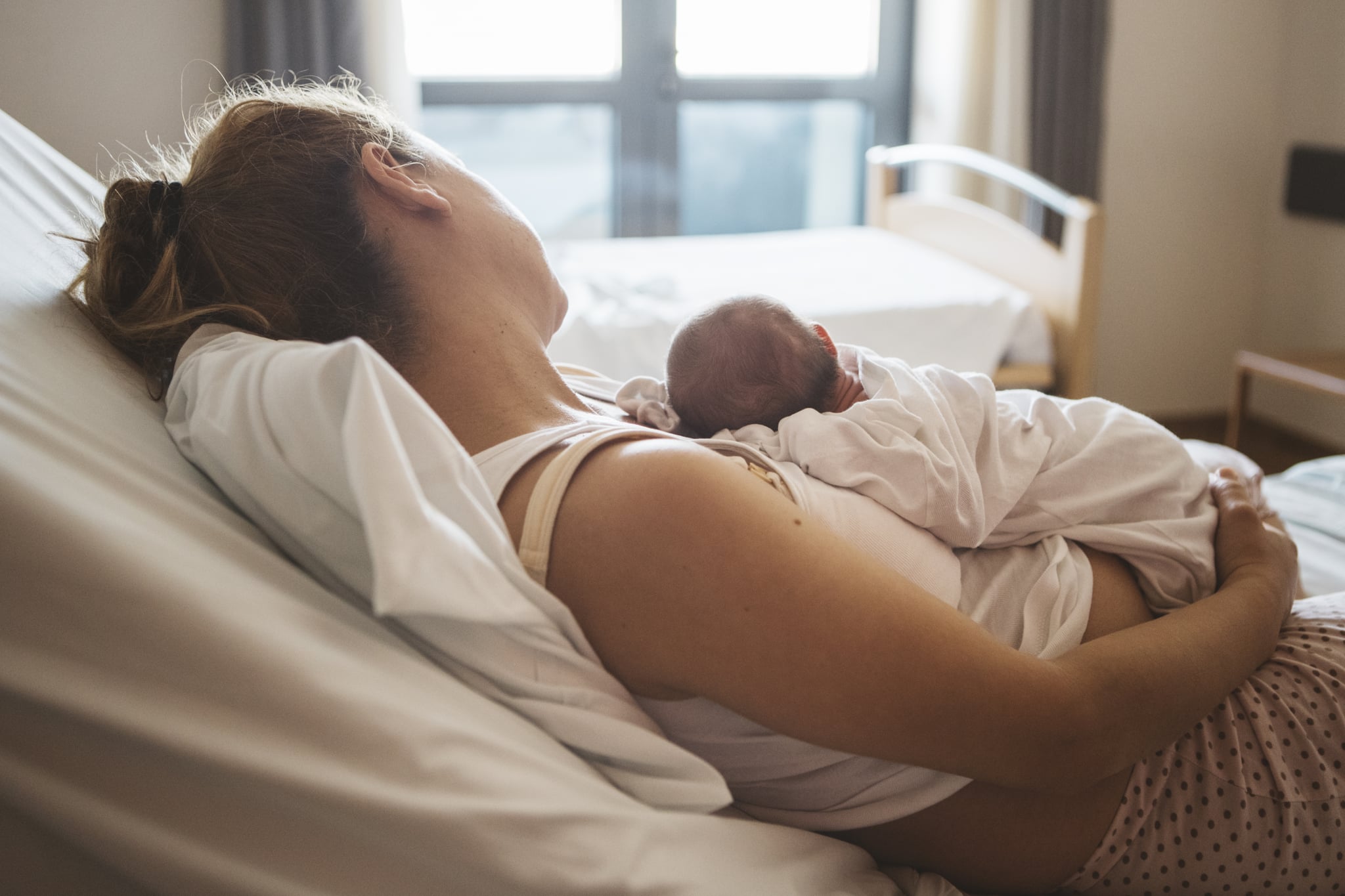How My Postpartum Anxiety Taught Me to Take Care of Myself
I Didn't Realise I Needed Help With My Anxiety Until It Consumed Me After I Gave Birth

The night my husband and I moved my son to his cot from the bassinet in our room, I stared at the baby monitor all night — consumed with worry that he would stop breathing or I would sleep too deeply to hear his cries. My husband snoozed soundly beside me, but every time I tried to close my eyes, panic rose up into my throat. I convinced myself that the only way to ensure my son's safety was my hypervigilance, so I stayed awake, staring at the monitor and tiptoeing into his room to check his breathing throughout the night.
I didn't know it at the time, but I was experiencing symptoms of clinical anxiety. Though I have a family history of depression and anxiety, I had never been officially diagnosed myself, so I was unaware that my symptoms were more than new-mum jitters. Eventually, my panic became all-consuming, interfering with sleep so drastically that I developed insomnia and keeping me homebound because I was too afraid to go out in public with my baby.
My son's paediatrician knew I wasn't well when I cried through his four-month checkup. She insisted I speak to my obstetrician immediately. I went straight to my doctor after my son's appointment and left with an official diagnosis of postpartum depression and anxiety. It was the first time in my life I had been diagnosed with a mood disorder, and it felt jarring. But as the shock wore off and I started to heal, I realised I've always experienced a low level of anxiety, but it spun out of control after the birth of my son.
Before becoming a mom, I dealt with stress by exercising, catching up on sleep, and spending time alone. These tactics had been enough to manage my anxiety before, but life with a newborn left little time for me to tend to myself. Sleep deprivation no doubt played a role in my declining mental state, and my son's tendency to cry no matter what I did only fuelled my anxious mind as questions about what I was doing wrong and why I wasn't good at this started to cloud any other thoughts.
With the help of medication, therapy, and, most importantly, time, I began to understand myself more, identify my triggers, and learn coping mechanisms to deal with my anxiety. I leaned on my husband for support and started taking better care of myself, allowing others to care for my son through the night so I could sleep, and taking small steps to leave the house with walks around the block.
Nearly four years later, I am a much happier mum. I'm able to soak in the joy of my son and his little sister, born earlier this year, without a constant stream of racing thoughts occupying my mind. My husband and I talk openly about how I'm doing, and when I feel myself slipping, I speak up. As a first-time mum, it was difficult for me to discern what emotions were a normal part of this huge life transition and what needed medical attention. Today, I recognise that when my anxiety is interfering with my sleep or my ability to do daily tasks, it's time to talk to my doctor.
I thought I had to give up time to myself when I became a mum, but my experience with postpartum anxiety taught me that caring for myself is the best thing I can do for my kids. Tending to my needs looks different now. It's something I have to plan for and create, but it's also something I prioritise because I know how important it is. Taking care of my kids starts with taking care of myself.







